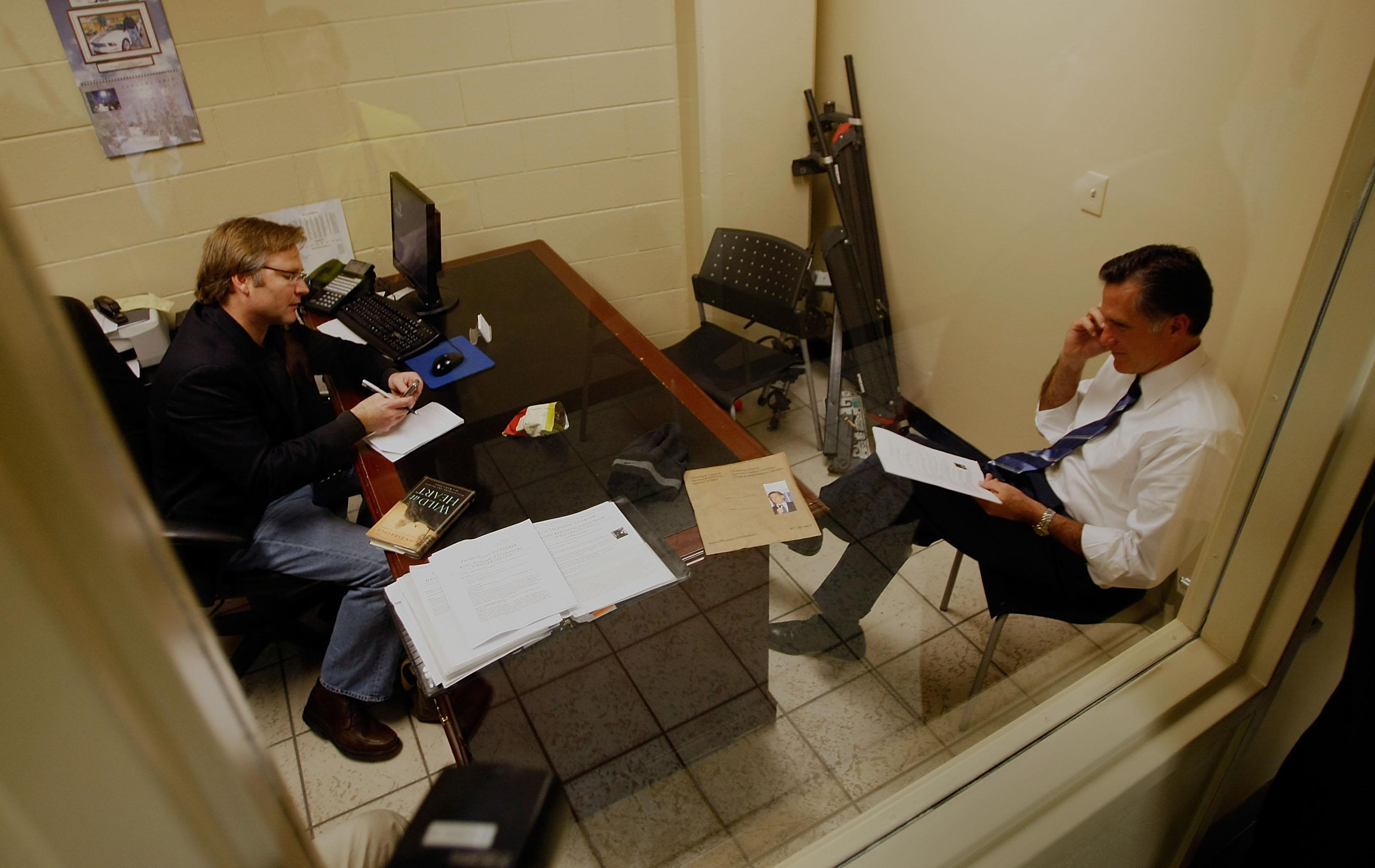If you were awake in March and April, you probably remember a line that the increasingly desperate Rick Santorum kept using against Mitt Romney. “Mitt Romney is the worst Republican in the country to put up against Barack Obama on the issue of health care!” he’d say. Once, he forgot to say “on health care,” and reporters pounced, because stories about gaffes and temperament are more fun than stories about policy.
Santorum was right. Today’s evidence: Eric Fehrnstrom driving the campaign bus, horns-a-honkin’, right over Americans for Prosperity and the RNC.
ERIC FEHRNSTROM: Chuck, the governor has consistently described the mandate in Massachusetts as a penalty. Let’s take a step back and look at what the president has said about Obamacare. In order to get it past the Congress, he insisted, publicly and to the members of Congress, that the mandate was not a tax. After it passed the Congress, he sent his Solicitor General up to the Supreme Court to argue that it was a tax. So he’s all over the map.
CHUCK TODD: … what you just said is that Gov. Romney agrees it’s not a tax. You guys call it a penalty.
FEHRNSTROM: The governor disagreed with the ruling of the court. He agreed with the dissent that was written by Justice Scalia, which very clearly stated that the mandate was not a tax.
TODD: I think we’re talking around each other. The governor does not believe the mandate is a tax. That’s what you’re saying?
FEHRNSTROM: The governor believes what we put in place in Massachusetts was a penalty and he disagrees with the court’s ruling that it is not a tax.
TODD: But he agrees with the president that it is not—and he believes that you should not call the tax penalty a tax, you should call it a penalty or a fee or a fine?
FEHRNSTROM: That’s correct.
Citing the dissent is important, here, because Scalia spends a lot of time explaining exactly why a penalty is not a tax. “We never have classified as a tax an exaction imposed for violation of the law,” he writes, “and so too, we never have classified as a tax an exaction described in the legislation itself as a penalty.”
The advantage that the RNC and AFP have: total lack of responsibility. They can play in the “anything that makes people pay more money for anything ever is a tax” Olympics. Romney can’t. The result: this healthful serving of word salad.
